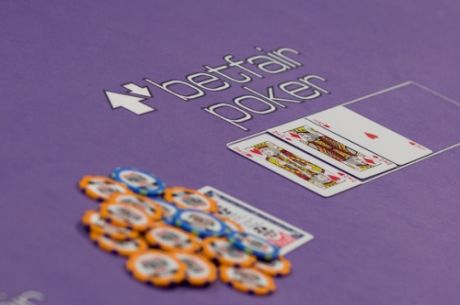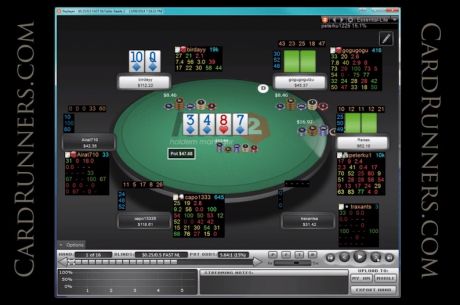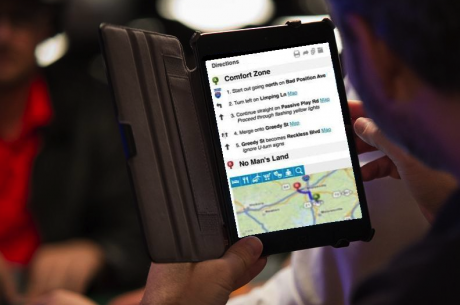Lessons from the 2014 PCA: Playing Premium Hands
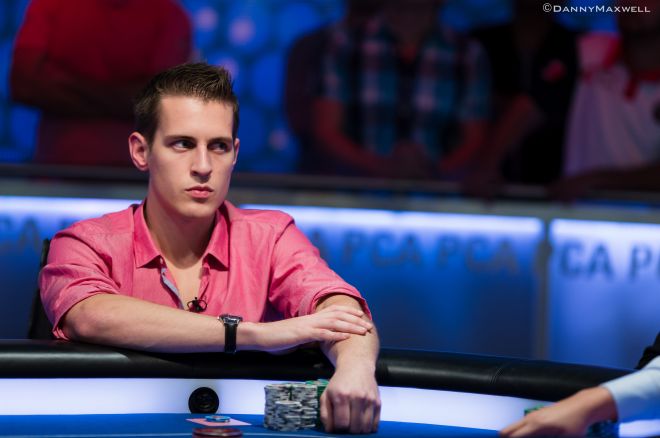
The first major tournament poker series of the year, the 2015 PokerStars Caribbean Adventure, cranks up this Tuesday, January 6. PokerNews�� Live Reporting team will be there from start-to-finish with comprehensive coverage of the $100,000 Super High Roller, the $25,000 High Roller, and the $10,000 Main Event. Today we look back at a key hand from last year��s exciting PCA Main Event final table.
Last year Dominik Panka topped a field of 1,031 players including a very tough final table to win the 2014 PCA Main Event and a $1,423,096 first prize. During seven-handed play at that final table a key hand arose involving eventual runner-up Mike ��Timex�� McDonald and then-chip leader Madis Muur, one of the most important pots of the tournament. The hand didn��t go to showdown �� in fact, there wasn��t even a flop �� but it still demonstrated several good lessons regarding playing premium hands.
The hand began with McDonald second in chips to Muur. As it happened, both players were dealt premium hands �� McDonald picking up A?K? on the button and Muur Q?Q? in the small blind �� which set the stage for a possible huge pot between the pair.
With the blinds at 30,000/60,000 with a 5,000 ante, it folded to McDonald who raised to 125,000 on the button. Muur three-bet to 310,000 out of the small blind, McDonald four-bet to 700,000, Muur five-bet to 1.275 million, then McDonald moved all in for 6.73 million and Muur folded.
McDonald had started the hand with 6.77 million chips, and ended it with 8.135 million and the chip lead. Muur fell from 7.315 million to 6.035 million.
There are several things that we can take away from this hand, starting with the button vs. small blind dynamic.
1. Button vs. Small Blind
When the action folds to McDonald on the button, the final table momentarily becomes a three-handed poker game between him, Muur in the small blind, and Daniel Gamez in the big blind. Gamez had taken some unconventional lines up to this point, but in general he wasn��t getting out of line too often.
McDonald��s opening range on the button is extremely wide, because he has position on the chip leader, Muur, in the small blind, and Gamez is either folding preflop or check-folding on a majority of dry boards from the big blind. That means when McDonald opens with his raise, Muur doesn��t necessarily want him just to fold to a three-bet, because he is absolutely crushing McDonald��s range.
When McDonald responds to Muur��s reraise by four-betting to 700,000, his range shrinks. Now it appears that the Canadian is ��polarized�� �� he either has a really good hand (the positive pole) or a really bad hand (the negative pole) �� because McDonald would want to take a flop in position with middling hands like Q?J? or 8?8?. When you four-bet with hands like that, you put yourself at risk of a five-bet and you lose out on opportunities to capitalize on the implied odds of flopping a set or straight/flush draws. McDonald knows this, and so his four-bet suggests he either has a very strong hand or is bluffing with very little.
Meanwhile Muur is in a tough spot facing the four-bet. It��s hard to get any value from a five-bet because McDonald will likely fold his four-bet bluffs and either call or six-bet with his premium hands. McDonald is capable of six-bet bluffing, but, again, you receive very little value from a seven-bet. If you plan to play the pot out of position, it would be wise to try and avoid a bloated pot and just call the four-bet.
The Estonian isn��t interested in playing a pot out of position against arguably the toughest player at the table, however, so he puts in a five-bet.
2. Aggression and Blockers
When Muur five-bets, the complexity of the hand goes up yet another level. How often in Muur bluffing? How often does McDonald win against bluffs/premiums when he peels? If McDonald puts in a six-bet, is it for value or is it a bluff?
McDonald doesn��t know what Muur is holding, but having an ace and a king in his own hand makes it less likely that his opponent has pocket kings or pocket aces. The Canadian holds two ��blockers.��
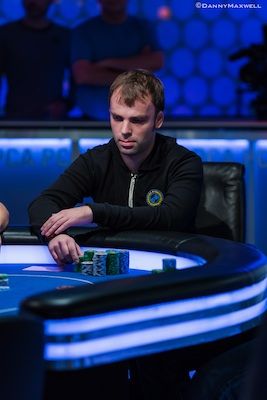
While the concept of ��blockers�� is more prevalent in Omaha because there are more cards and tend to be more draws, it can certainly apply to no-limit hold��em. For example, if you and an opponent are heads-up on a board of 2?5?10?K?7?, and you hold the A?, you know that your opponent can��t have the nuts. If he or she is a very tight player, you might even be able to bluff your opponent off of a flush if you know the player is unwilling to call a big bet without the A?.
McDonald knows that there are only three aces and three kings remaining in the deck, and thus can use this information to analyze Muur��s range.
McDonald��s shove is incredibly aggressive, and puts Muur in another tough spot. If he calls the shove, he would be risking about 92% of his chips. The best-case scenario for Muur would be McDonald is blowing up with some random hand. Otherwise, Muur is flipping for nearly half of the chips in play with seven players still remaining (if McDonald has ace-king), or he is way behind if McDonald happens to have kings or aces.
There is no pressure like the pressure of potentially playing a 225-big blind pot with hundreds of thousands of dollars in equity on the line.
3. Having a Plan
When Muur puts in a five-bet, he has to be prepared for McDonald to move all in. There needs to be a plan. Judging by his reaction, Muur wasn��t ready and had no idea what to do once McDonald went for the kill.
Isaac Haxton was a guest commentator on EPT Live during this hand, and he disliked the five-bet/fold line from Muur. He explained that Muur basically turned pocket queens �� the third best pair in hold��em �� into a bluff. Basically, once Muur put in a five-bet, he was committed to his hand and should have called the all in. Continuing to bloat the pot and then fold was a mistake.
Luckily for Muur, he was still second in chips after the hand and managed to finish in fourth place, earning $581,040. Usually mistakes like these limit players from making deep runs, particularly in your average, shallow-stacked tournament.
Get all the latest PokerNews updates on your social media outlets. Follow us on Twitter and find us on both Facebook and Google+!

